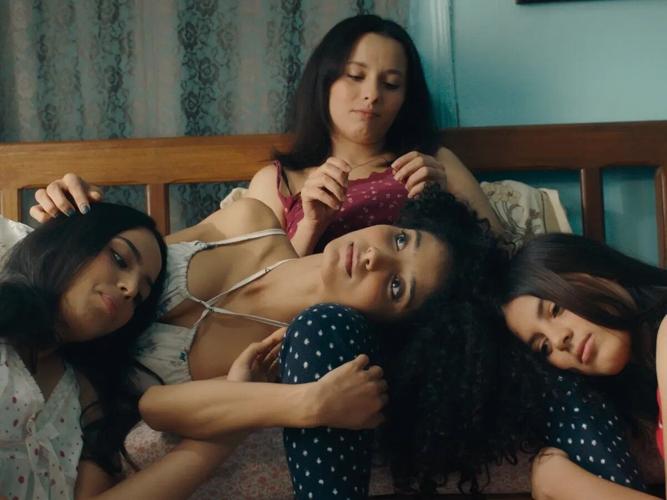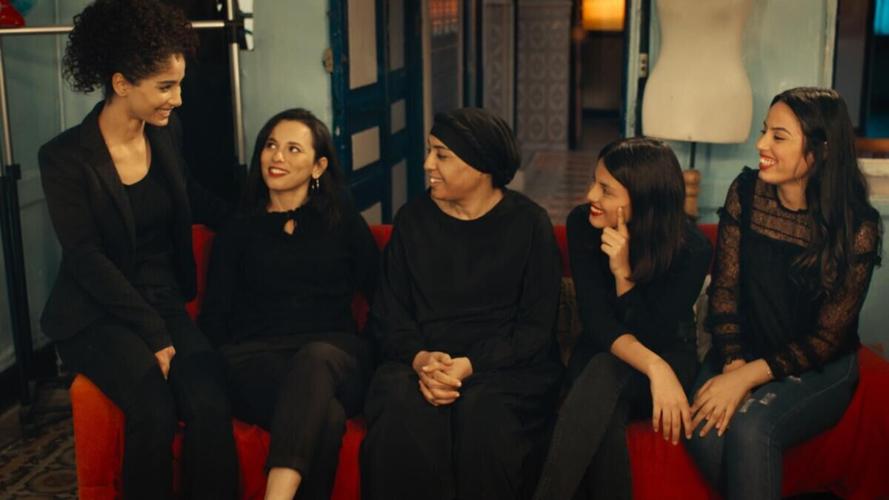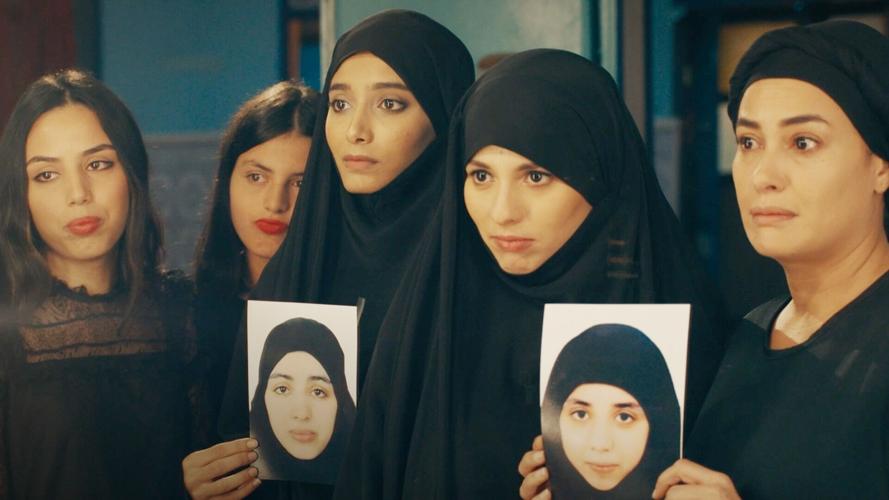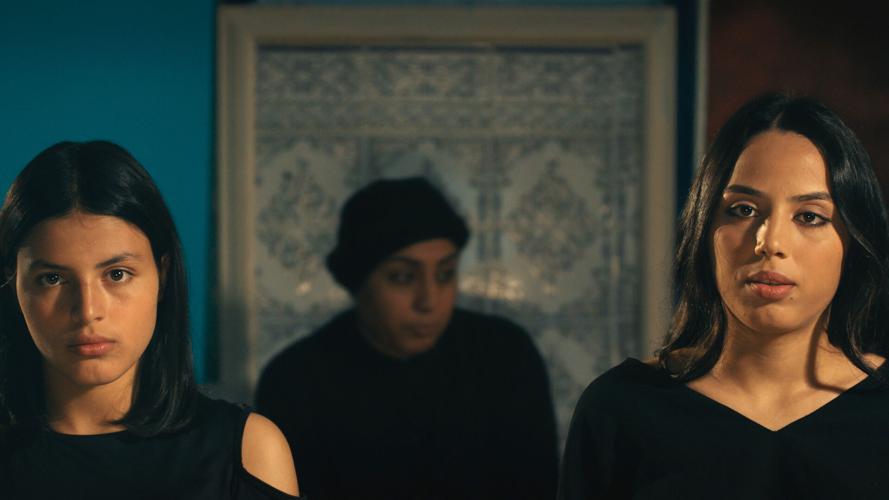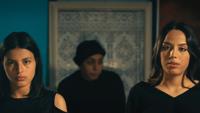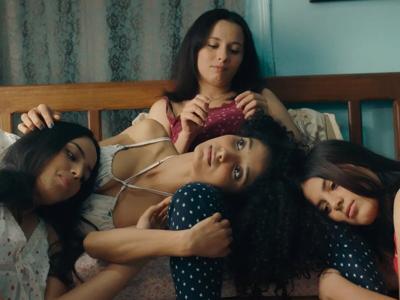Nominated for Best Documentary Feature at the 96th Academy Awards, this film was also shortlisted for Best International Feature but didn't get that nomination. Kaouther Ben Hania is a female filmmaker from Tunisia. She's done several features. Three of which have been the official submission from Tunisia to the Oscars. Her previous entry, The Man Who Sold His Skin (2021), was nominated for Best International Feature at the 93rd Academy Awards. Her film lost that year. This one won Best Documentary Feature at the 39th Spirit Awards, but Hania's chances don't look good in the same category at the Oscars. However, her film stands out because it's not done like most documentaries.
Hania's film is about a Tunisian woman named Olfa Hamrouni who made the news in 2016 when she announced that her two eldest daughters had been radicalized to join the terrorist organization, known as ISIL or ISIS. Her daughters were eventually arrested in Libya, which borders Tunisia in northern Africa and the so-called Middle East. Hania interviews Hamrouni. Hania also interviews Hamrouni's two youngest daughters Eya, born 2003, and Tayssir, born 2005. However, Hania goes further. She does re-enactments to go along with the interviews, which isn't unusual for documentaries.

She hires actresses to play the two arrested daughters, and, in addition to having those actresses do re-enactments, Hania also has those actresses interact with Hamrouni and her younger daughters in scenarios both real and invented. Hania also has Hamrouni herself be an actor in re-enactments or various scenes in the film as well. Hania hires an actress to portray Hamrouni in scenes that are too emotional for Hamrouni to handle. In those scenes, for example, Hania even has Hamrouni directing the actress that's her substitute. Hania essentially turns her real-life subjects into actors to tell their story or a version of it. It's strange and meta, but it's a way to make her film stand-out.
What she's doing isn't totally unique or original. Documentary filmmakers have made their real-life subjects be actors to tell their stories or part of their stories. It's often done when footage of the story can't be achieved any other way. There have been instances when it's been done for some artistic effect or to prove some grander point. One such example is Joshua Oppenheimer's The Act of Killing (2012) or Kirsten Johnson's Dick Johnson Is Dead (2020). To a degree, Chloé Zhao's The Rider (2018) is an extreme example, so much that it's not even considered a documentary.

A lot of Hania's film though isn't about showing us the re-enactments. A lot of her film is showing the behind-the-scenes moments. For example, Hania shows us Hamrouni and her youngest daughters meeting the actresses playing the eldest daughters for the first time. She doesn't just show us this moment, but it becomes this long and drawn-out sequence where it becomes about the process more than it's about the news story that inspired all of this. In that, Hania's film shares a connection to Todd Haynes' May December (2023).
Eventually, Hania's film does start to pivot to be more about that news story. One wonders if Hania's goal is similar to Oppenheimer's. In The Act of Killing, Oppenheimer was trying to show how bad the subjects were and to implicate them in a way that they weren't legally. Timur Bekmambetov's Profile (2021) was about how women could be recruited into terrorist groups like ISIS over the Internet. Hania has no interest in exploring how Hamrouni's eldest daughters were recruited from the outside in. She seems more concerned on working inside out and exploring how Hamrouni might have caused her daughters to be recruited, how she might have pushed them into that direction.

I'm not sure Hania hammers that point. It's one that's inferred based on what she chooses to show. Having Hania participate the way that she does in the process of directing the re-enactments, it seems to be a way of illuminating her role in where her daughters ended up. Obviously, Hamrouni has some self-reflection, but I'm not sure if it's enough to question her mothering mistakes or the quandaries of such in a situation, such as hers, which included divorce and abuse. The film instead ends with the younger sisters more in self-reflection over being put in a juvenile center, essentially being away from their mother.
Not Rated but for mature audiences.
Running Time: 1 hr. and 47 mins.
Available on VOD and DVD.

